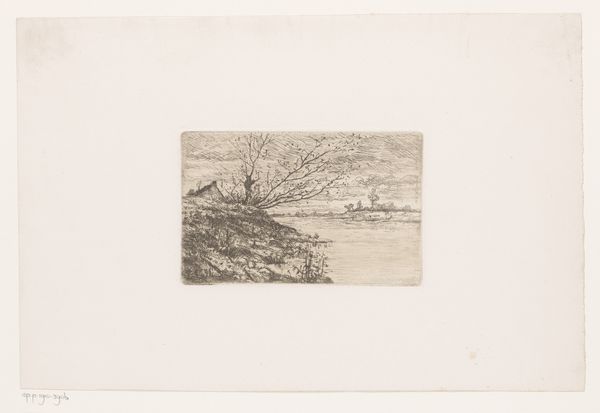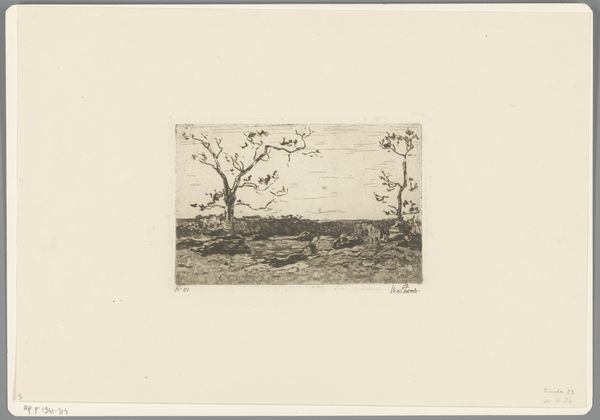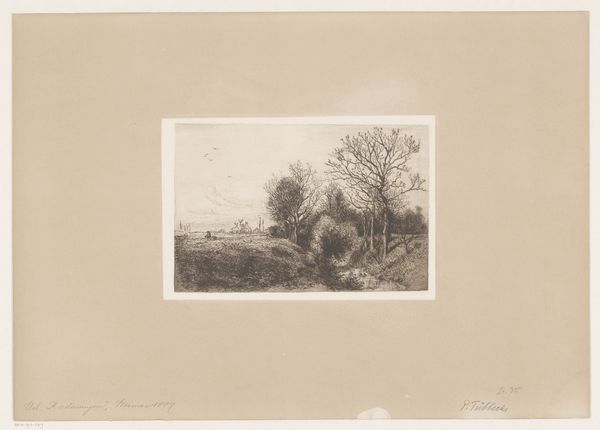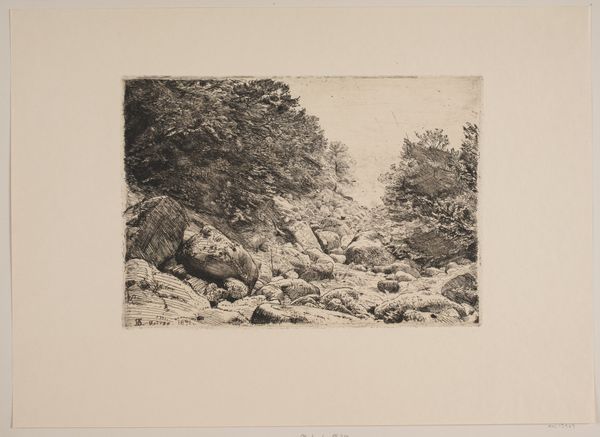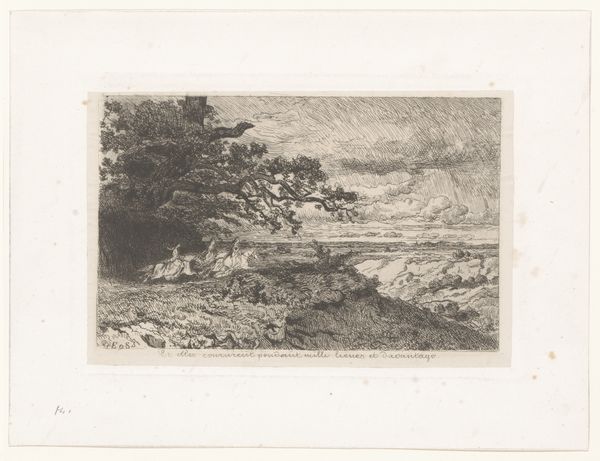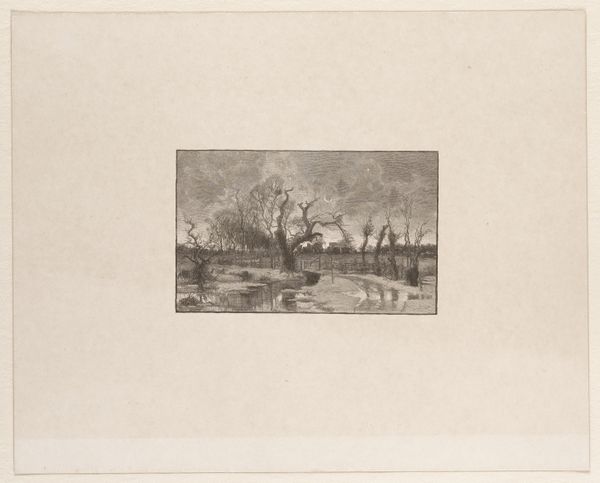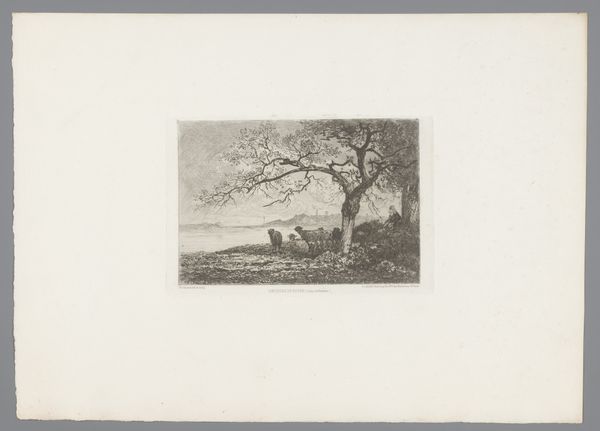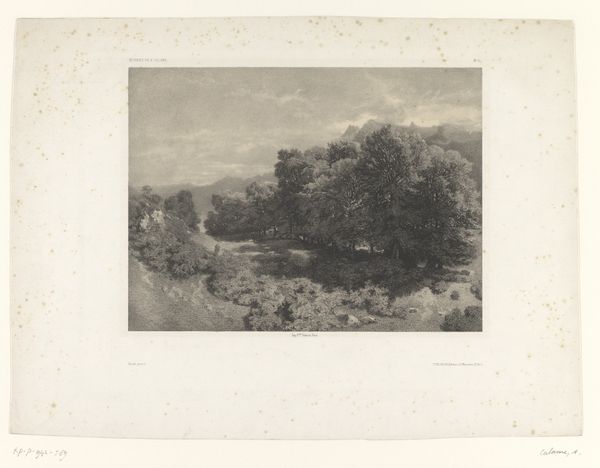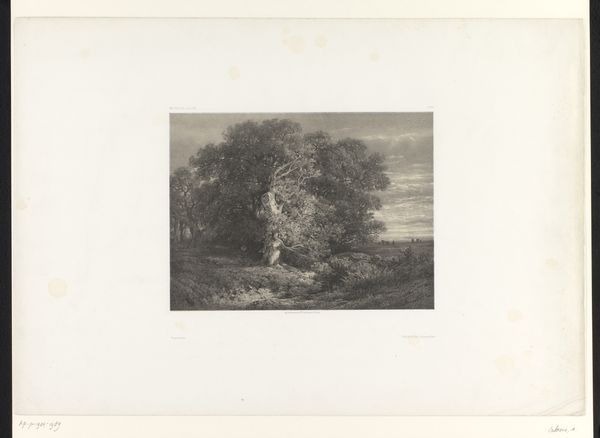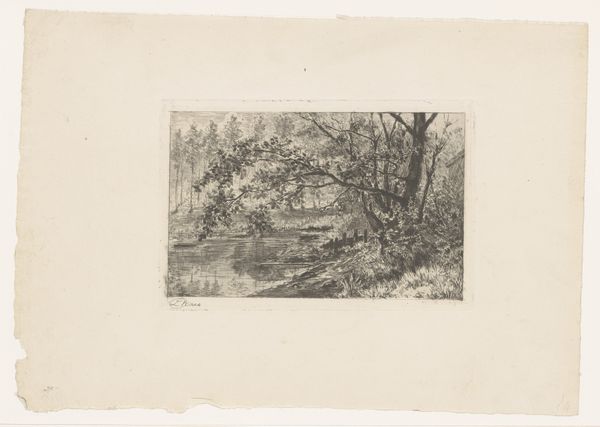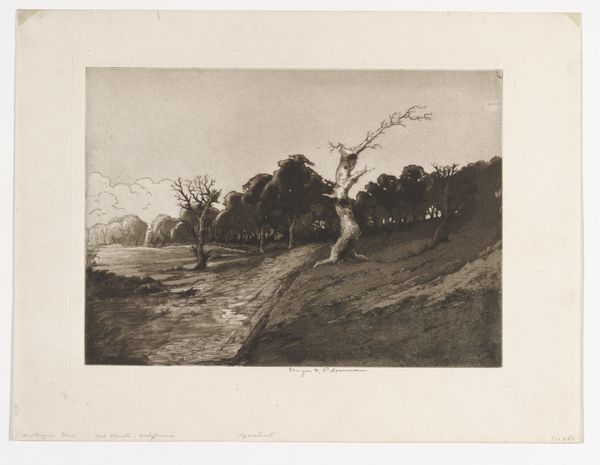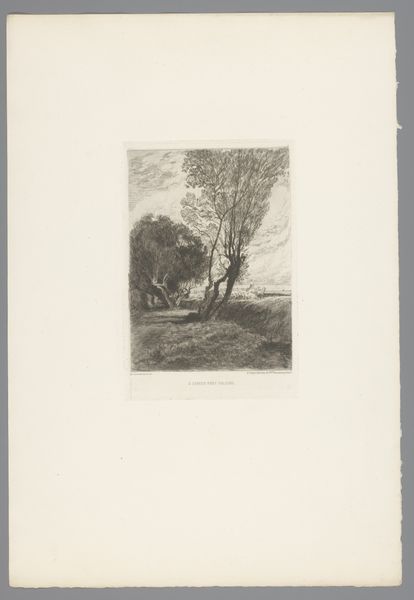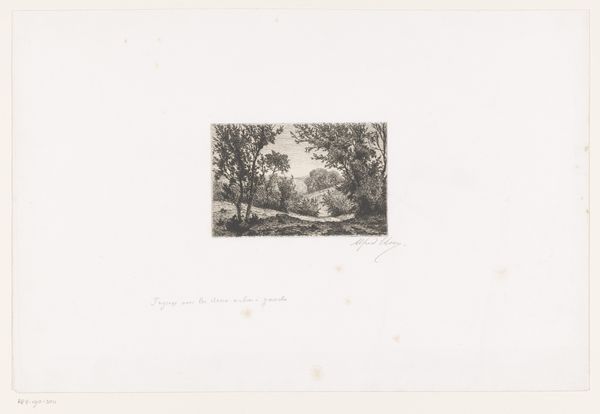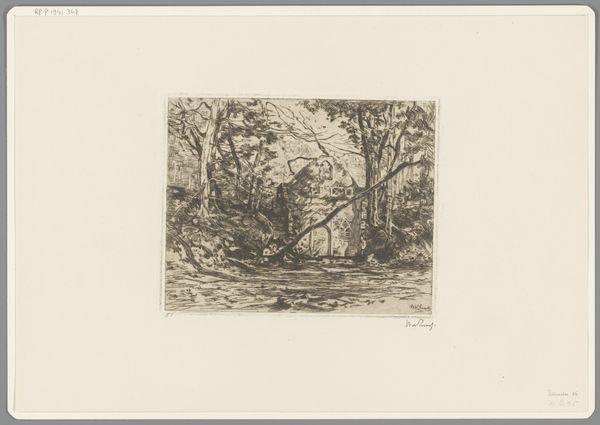
drawing, paper, pencil
#
pencil drawn
#
drawing
#
light pencil work
#
impressionism
#
pencil sketch
#
landscape
#
paper
#
pencil
#
realism
Dimensions: height 219 mm, width 347 mm
Copyright: Rijks Museum: Open Domain
Curator: Here we have Auguste Danse’s “Landscape near Yvoir on the Banks of the Meuse,” rendered in pencil on paper in 1885, currently residing here at the Rijksmuseum. Editor: My initial reaction is one of quietude. The light pencil work gives it a somewhat faded, dreamlike quality. There’s something almost haunting about its simplicity. Curator: It's interesting you say that. Danse was working in a period grappling with significant social change. While he was known for society portraits, these landscapes also reveal his attempt to engage with nature. We see here a clear understanding of composition but also an impressionistic leaning, which contrasts sharply with the more academic style of his portraits. Editor: Absolutely. I’m struck by how the absence of color affects the viewer. We have a tendency to see these kinds of landscape studies in color, whether paintings or photographs. Here, in stark pencil, we are invited to contemplate a place not through vibrant display but rather intimate contemplation of it. The social function then speaks volumes; while some had access to lush colour displays of wealth in portraiture, other landscapes like these signal the reality of quiet working life that others inhabited. Curator: Precisely. Pencil as a medium also lends itself to accessibility. Danse’s choice reflects broader shifts towards democratic forms of representation. A readily available medium could be adopted by anyone to participate in recording, displaying and changing how others perceive it. Editor: Right. I feel drawn to this composition also because it isn't sublime or overly dramatic. Instead, we get a glimpse into an unremarkable location imbued with understated beauty that, nonetheless, conveys how everyday realities shape public identity. Curator: Indeed, and it causes one to reflect on how landscapes have always been interwoven with sociopolitical dimensions of belonging, of working lives being inscribed into visual culture for the first time, a political power play enacted with pencil lines. Editor: Well, this exercise definitely challenges the common misconception that landscapes lack political undertones. It offers a poignant perspective on landscape art through social frameworks of inclusion and erasure. Curator: It truly invites you to look beyond the obvious. I will definitely contemplate what implications are possible for ordinary, sketched landscapes, from now on.
Comments
No comments
Be the first to comment and join the conversation on the ultimate creative platform.
